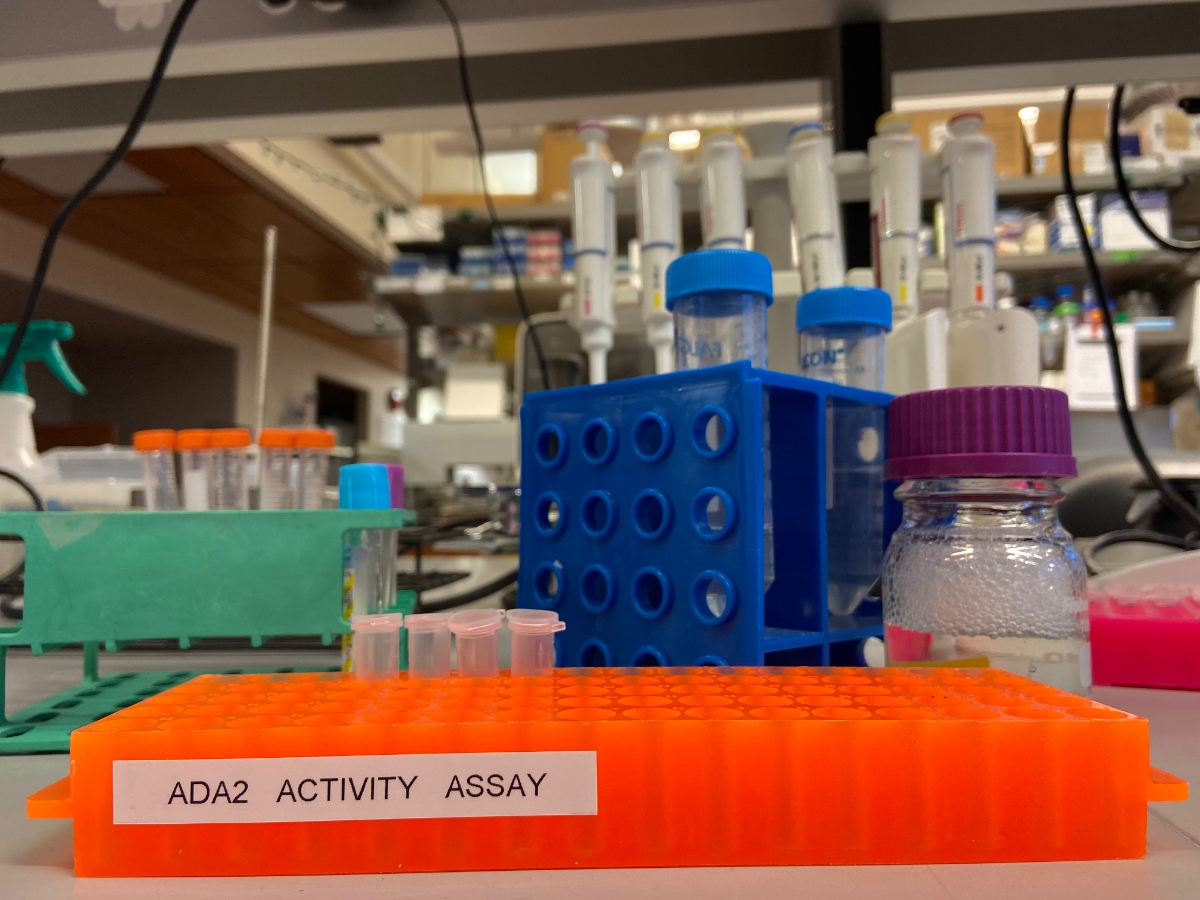Research
DADA2 and ADA2 biology
Adenosine deaminase 2 (ADA2) is an extracellular growth factor and enzyme that breaks down the molecule adenosine in the blood. Small but damaging changes (“mutations”) in ADA2 cause a disease that typically presents in childhood called “Deficiency of ADA2", or DADA2 for short. In most children, DADA2 causes damage to blood vessels and can lead to strokes and permanent organ damage that resembles another disease called vasculitis. Other children with DADA2 have normal blood vessels (no vasculitis) but various problems with their immune system, the most severe being an inability to make all or some immune cells.
Although the disease presentations of DADA2 suggest roles for ADA2 in the human immune system, these roles are not yet fully understood and are a subject of debate. Related, whether the location of mutations in ADA2 is informative of the nature and severity of their damage, and in turn may be linked to why disease presentations of DADA2 differ between children, is a question of interest. This project aims to address gaps in our understanding of ADA2 biology in the context of regular immune function and disease.

